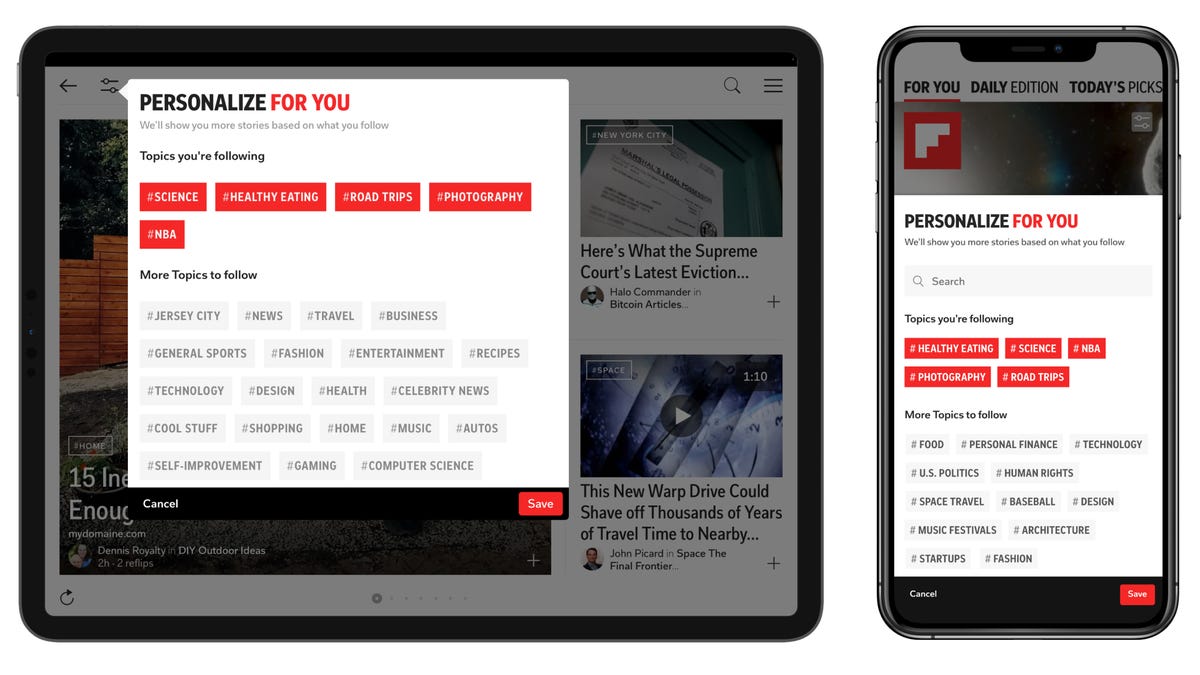Flipboard wants to make a better news feed by giving you more control
The social news reading app is offering people more control over what news shows up in their feeds, a distinct shift from Facebook.

Flipboard has steadily been trying to build a more personalized news feed, different from Facebook.
In a world where it isn't always clear who or what to trust when it comes to getting news on the internet, Mike McCue says he has an answer. A new update to his social news reading app Flipboard adds a feature that lets you tell the company details about the topics you find interesting.
You may be interested in health, but specifically mental health, not alternative medicine. Now you can tell Flipboard that through a new personalization button, placed on news feeds throughout the app.
Starting Tuesday, Flipboard users will be able to fine-tune what's included in the "for you" feed they see when starting the app by tweaking settings with a "tune icon" placed at the top right of the page. Tapping the button brings up a list of topics you can select, or you can search among the 30,000 Flipboard offers.
"We're going to let you personalize and tune these feeds at an incredibly detailed level," said McCue, Flipboard's CEO and co-founder. This approach, he added, is designed to give people a feeling of control over the computer programs, or algorithms, that pick stories to show in the feed. "You'll be able to do things like really zero in on very specific kinds of content and how that content got to you -- dial it up or dial it down, turn it off or turn it on."
Flipboard's new "tune" icon in action.
Flipboard's move to offer more transparency and control over the way its algorithms work is a departure from companies like Facebook , YouTube and TikTok, which largely serve up new items on their apps based on how we use their services. The more a person reads and posts about politics, for example, the more politics those apps will serve up. This approach of effectively giving people what they want has helped to value Facebook at more than $1 trillion, but it's also helped supercharge the spread of misinformation about COVID-19 among the social network's 2.9 billion monthly users, among other things.
McCue, who served on Twitter's board of directors a decade ago, pushes to vet sources that come into Flipboard first. The company does this with a team of about 20 people who refine how Flipboard's systems rank various publications and pick stories. News items that come from untrusted sources simply don't get amplified, or aren't as often inserted into other people's feeds by the algorithm.
That approach appears to help keep misinformation from spreading too far into headlines on Flipboard, which counts about 145 million monthly users across its free website and its iOS and Android apps. It's also different from what happens on Twitter, YouTube and Facebook, which appear to have been caught flat-footed by conspiracy theories and other harmful posts that go viral.
Flipboard's "human and editorial and algorithmic collaboration is, really, I think ultimately how we get these really quality feeds," McCue said.

